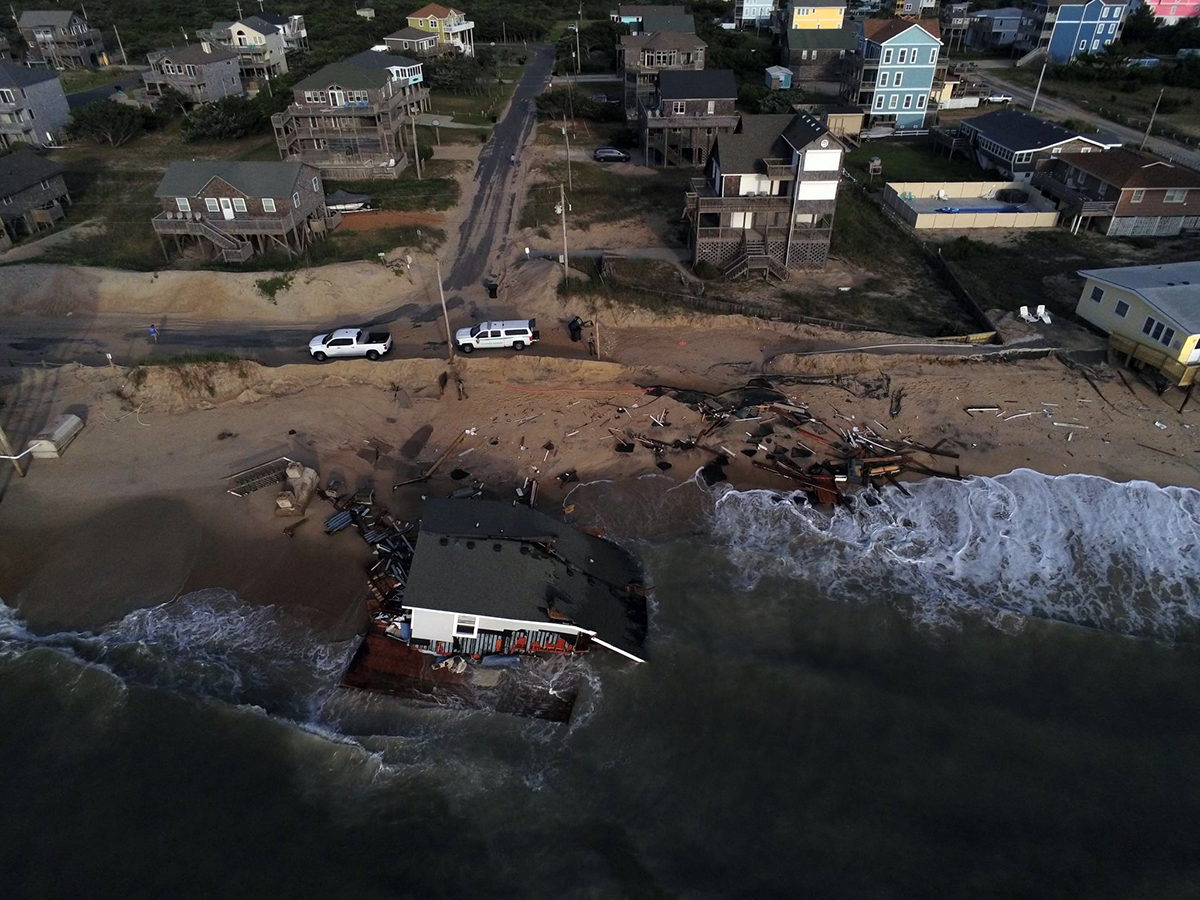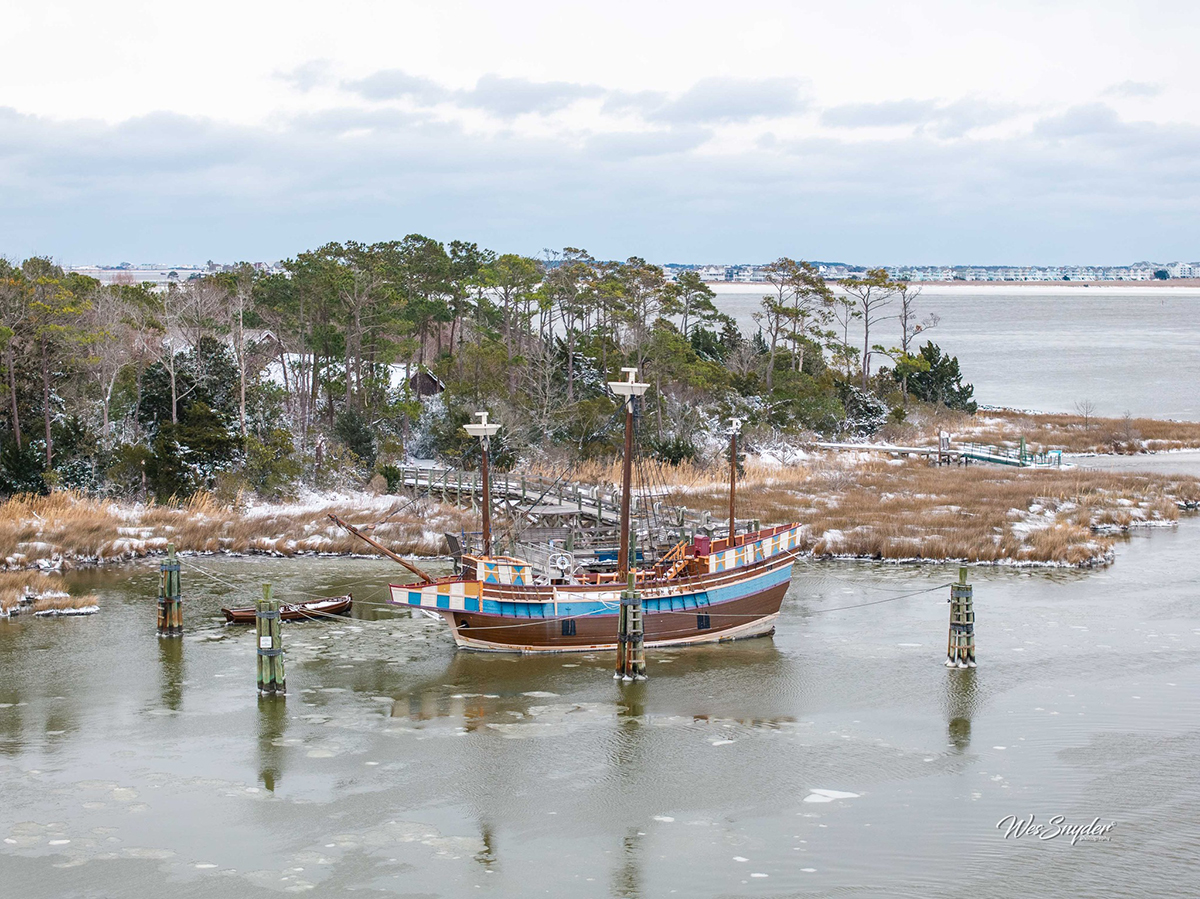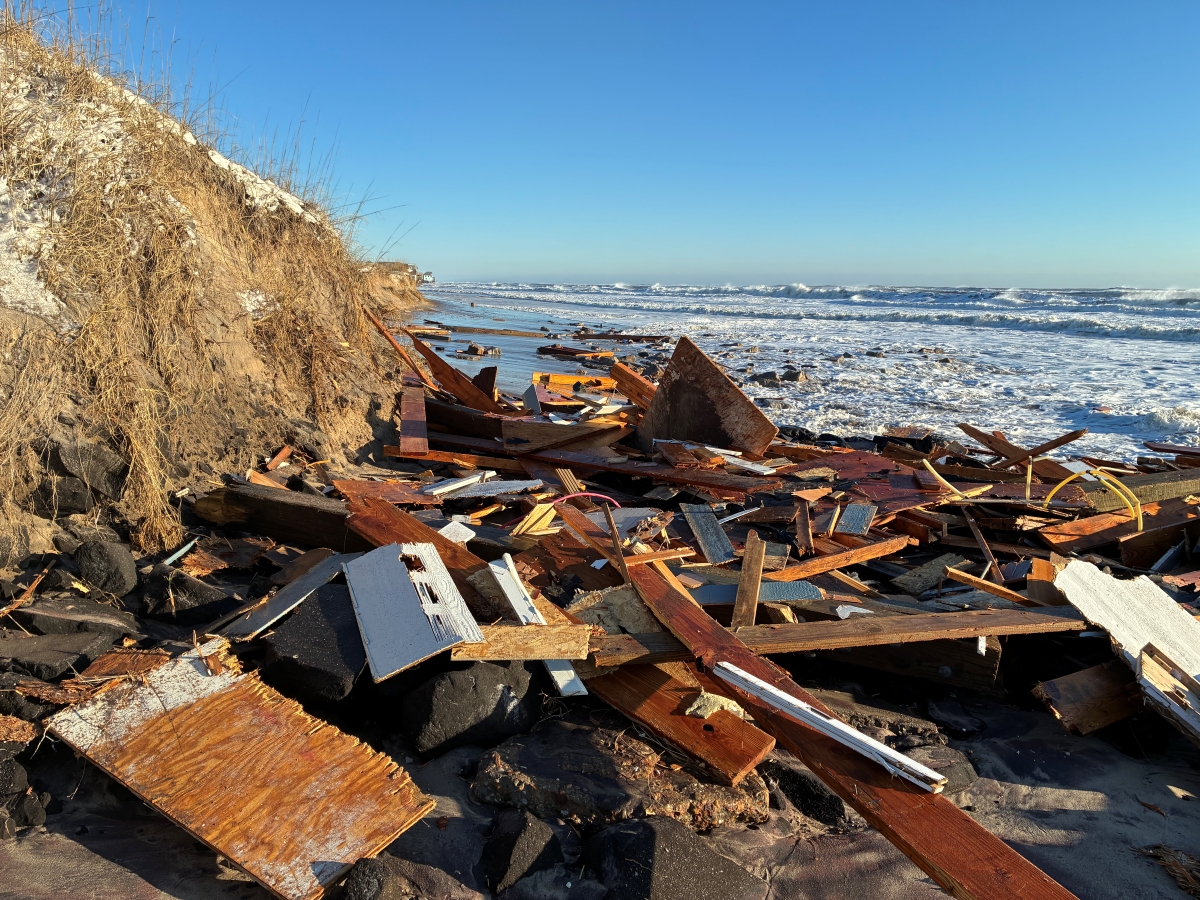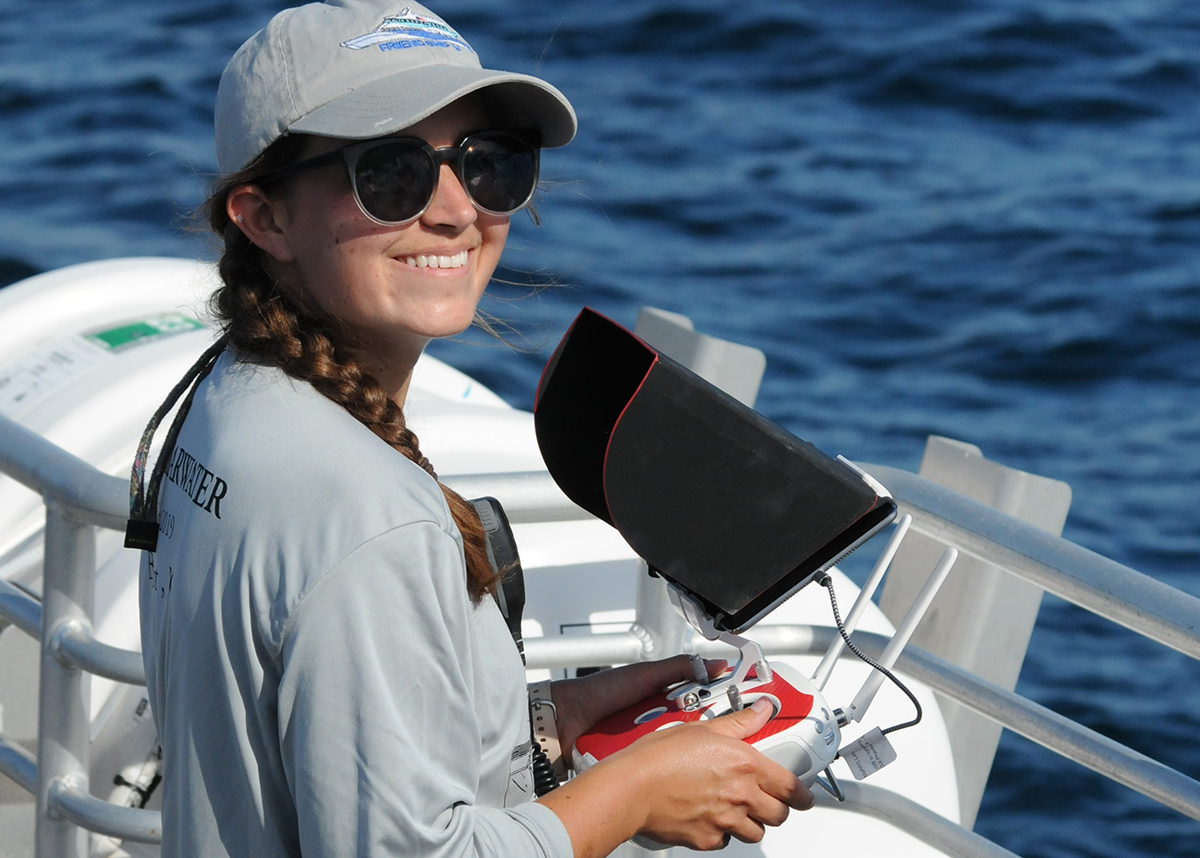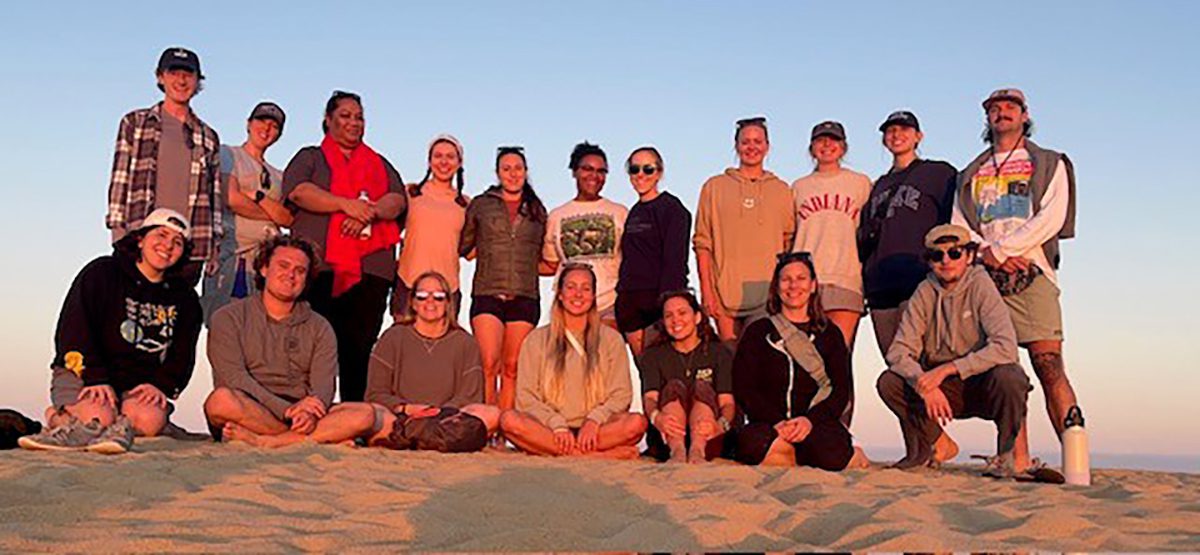
It’s not uncommon for Dr. Jim Herstine to hear his name enthusiastically called out when he’s out and about in Wilmington.
Admittedly, he doesn’t always immediately recognize the smiling face greeting him in a parking lot or grocery store. By his estimates he taught some 300 students in a class that he and a couple of colleagues came up with to offer at the University of North Carolina Wilmington in the mid-1990s.
Supporter Spotlight
But his former students who took the North Carolina coastal issues and experience class, now more than 20 years strong and counting, remember the course that took them from the classroom on a trip through the Outer Banks.
“It was my favorite class to teach,” said Herstine, who earned the title professor emeritus when he retired in the summer of 2018. “The whole purpose of the class was to get the students out of the classroom and into real-life situations.”
He’s “tickled to death” the course continues to leave an impression on students willing to brave the seven-night, eight-day field portion of the class that entails camping, kayaking and covering miles and miles of coastal areas to learn about and experience the Outer Banks and the issues communities within the region are facing, be it climate change, tourism-related impacts or development.
Today, UNCW students may take this unique course during the university’s first summer session, which ran from May 20 through June 18 and was, this year, opened to undergraduate students by Dr. Jennifer Biddle, an associate professor of public and internal affairs who inherited the course from Herstine.
Biddle explained in a telephone interview earlier this month that the ultimate goal of the field course is to bridge the gap between science and policy by exploring an area filled with beautiful beaches, “but they have a lot of serious threats that they are being faced with.”
Supporter Spotlight
“The idea is we really are trying to help (students) understand the variety of perspectives on these coastal issues,” Biddle said.
Think of it as a guide to get students to appreciate and empower them in how they can help affecting change where they live.
Students learn about how different organizations are coping with threats facing these coastal communities, why it’s important to protect those areas and how they, in their future professions, can work with various organizations and groups in helping coastal communities deal with these issues.
It’s an ultimate field trip that takes the students through an immersive experience from the Virginia border to Carteret County, stopping along the way to kayak along freshwater rivers and coastal sounds and meet with an array of professionals, from federal and local government officials to coastal environmentalists to ferry captains.
They camp primarily in state parks and on national seashores, more often than not washing off the day’s grime in cold showers at primitive campgrounds.
But what they lack in modern-day comforts, they gain from the sound of a chorus of frogs at night, marveling at a stingray swimming gracefully near their kayaks and good conversation about the day’s highlights over a communal dinner, Biddle said.
“You have the whole tourism economy meets sea level rise,” she said. “Or, even in Hyde County, the loss of economic opportunities meets sea level rise. And, one of the prevailing things in the Down East area is sense of loss.”
That includes a loss of community, loss of lifestyle and livelihoods and loss the community has experienced as members of families who have been here for generations move away, she said.
This year’s class of 15 students, including five undergraduate students and 10 graduate students, represented an array of studies: oceanography, political science, public administration, environmental sciences, biology, public policy and the university’s Master of Coastal and Ocean Policy degree program.
“I definitely came back tired. I definitely came back dirty, but it was a fantastic opportunity because I came back with so many different perspectives,” said UNCW Assistant Director of Transfer Admissions and graduate student Trey Ricks. “I think one of the things that I walked away with that has been most impactful is that you have to work with the environment and people to make any kind of change.”
Fulbright Scholar and UNCW graduate student Elisapeti Veikoso saw some parallels between the issues Outer Banks communities are facing and those of her native Tonga.
“I have to say that this course was an eye-opener for me in how developed countries try to deal with coastal issues and the big issues that we’re facing nowadays – climate change, sea level risk and frequent tropical cyclones, I think you call them hurricanes,” she said. “I got the same feeling that we have at home. We’re not alone in dealing with climate issues. As an islander, that is our story as well. This class is really an eye-opener.”
That’s what the professors – current and past – aim to provide through the course.
“It took a lot of people to put the whole class together,” Herstine said. “Do I think that the class itself is a legacy for the university? Yes, I definitely do.”



